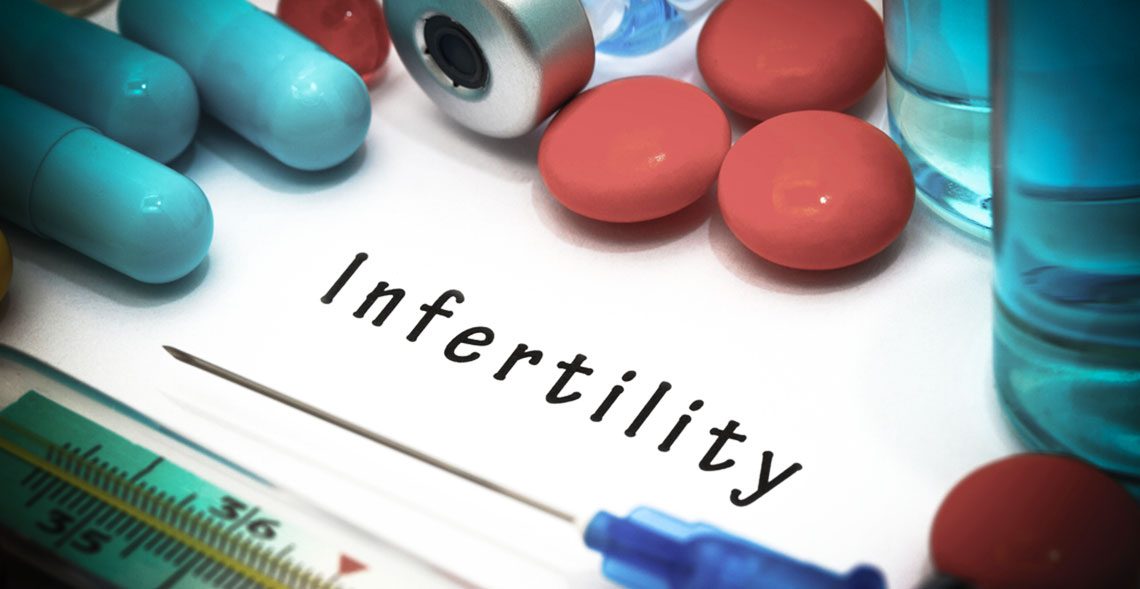Preventive Healthcare
Infertility in Females - Types, Cause and Risk Factors

Table of Contents
Infertility is a condition where you may try to get pregnant through frequent and unprotected sex for at least a year without success. It could be due to a combination of both male and female infertility. The exact causes of infertility in females are hard to pin down. While the diagnosis may be difficult, treatment is readily available depending on the ground and stage.
Understanding the Female Reproductive System
It is difficult to determine the leading cause of female infertility. But to understand infertility, you must understand every step of the human reproduction process. To conceive, every effort has to fall into place in the exact order below-
- Either of the two ovaries must release a mature egg.
- The fallopian tube has to pick up this egg.
- The sperm has to reach the uterus through the cervix after intercourse and enter the fallopian tube to fertilise the egg.
- The egg, once fertilised, has to shift to the uterus.
- The fertilised egg has to attach itself to the insides of the uterus, where it will be nurtured to grow.
Several factors can disrupt this process in women, leading to one or more infertility causes in females.
Types of Infertility in Females
There are mainly four causes of female infertility. Each one is described below in detail.
1. Ovulation Disorders
One of the most common causes of infertility in females is infrequent ovulation or the complete absence of it. This disorder is caused by irregular reproductive hormone production by the hypothalamus or pituitary gland. Ovulation disorders can take many forms, like,
- Polycystic Ovary Syndrome (PCOS) causes hormone imbalances, resulting in ovulation disorders. It is considered one of the most common infertility causes in females and can be caused by insulin resistance, obesity, excessive or abnormal facial hair growth, and acne.
- Hypothalamus Dysfunction: FSH or Follicle-Stimulating Hormone, and LH, or Luteinizing Hormone, stimulate ovulation every month in women. The secretion of these hormones may be adversely affected due to excess emotional, physical, or mental stress or sudden weight loss or gain. Such a condition is manifested through irregular or missed periods.
- Premature Ovarian Failure: Also known as primary ovarian insufficiency, this abnormality is caused by an autoimmune response or the sudden or early loss of eggs due to chemotherapy or genetics.
- High Prolactin: Sometimes, the pituitary gland may produce too much prolactin, reducing estrogen production and causing infertility.
2. Tubal Infertility
The fallopian tubes may be damaged, blocking an egg from entering it, and leading to tubal infertility. Fallopian tubes can be blocked or damaged due to,
- A pelvic inflammatory disease infects the fallopian tubes and uterus through gonorrhoea or STIs (Sexually Transmitted Infections)
- Past surgeries in the pelvis or abdomen
3. Endometriosis
This type of infertility in females occurs when uterine tissues start growing outside the uterus. In such cases, the extra tissues can be removed surgically but may leave scars, which can block the fallopian tubes. Endometriosis can damage a fertilised egg.
4. Uterine or Cervical Causes
Sometimes the cause of infertility in females can be cervical or uterine, which can prevent egg implantation or even result in a miscarriage. These causes can be of various forms, such as:
- Fibroids (myomas) are common in the uterus
- An unusually shaped uterus
- Cervical stenosis that narrows the cervix area
- Inability to produce mucus from the cervix to allow easy travel of the sperm into the uterus
There are still other cases where infertility in females may be due to unknown reasons. And sometimes, these could be a combination of factors and causes in both the male and female partners.
Drugs That Cause Infertility in Females
Apart from the causes listed above, some drugs and medicines may also lead to one or more types of infertility in females. If you are currently taking any of the following medications, it is best to discuss their side effects with an expert:
- Psychiatric medications such as antidepressants or antipsychotics
- Steroids such as anabolic or corticosteroids are used to treat lupus or asthma
- Anti-epileptic drugs such as Valproate and Phenytoin
- Thyroid drugs can also affect prolactin levels
- Skin products that contain progesterone or estrogen
- Chemotherapy, especially with toxic alkylating agents
Risk Factors for Female Infertility
To understand the leading cause of female infertility, it is crucial to consider some critical lifestyle factors that may put you at high risk.
1. Age Factor
In women, post the age of 30, the rate of follicle loss picks up speed, resulting in fewer and poorer quality eggs, making conception and pregnancy difficult. It may also increase the chances of a miscarriage.
2. Tobacco Consumption
Smoking and other forms of tobacco consumption can cause irreparable damage to your cervix and fallopian tubes. It also increases the likelihood of ectopic pregnancy and miscarriage.
3. Obesity or Malnutrition
Being overweight or excessively underweight can also put you at risk of infertility. Maintaining a healthy body mass index, or BMI, is essential for regular and healthy ovulation and for the chances of pregnancy to be high.
4. STDs
Sexually transmitted diseases (STDs) or infections such as gonorrhoea or chlamydia can severely damage the fallopian tubes. It is advisable to maintain healthy sexual relations with your partners and not engage in unprotected sex with multiple partners.
5. Alcohol Consumption
Excessive consumption of alcohol can also increase the chances of infertility in women after a certain age.
So, if you are trying to get pregnant or plan to conceive in the future, it is good to be aware of these infertility causes in females and steer clear of the risk factors. To be safe, you can get a complete gynaecological test done with Metropolis Healthcare.




























